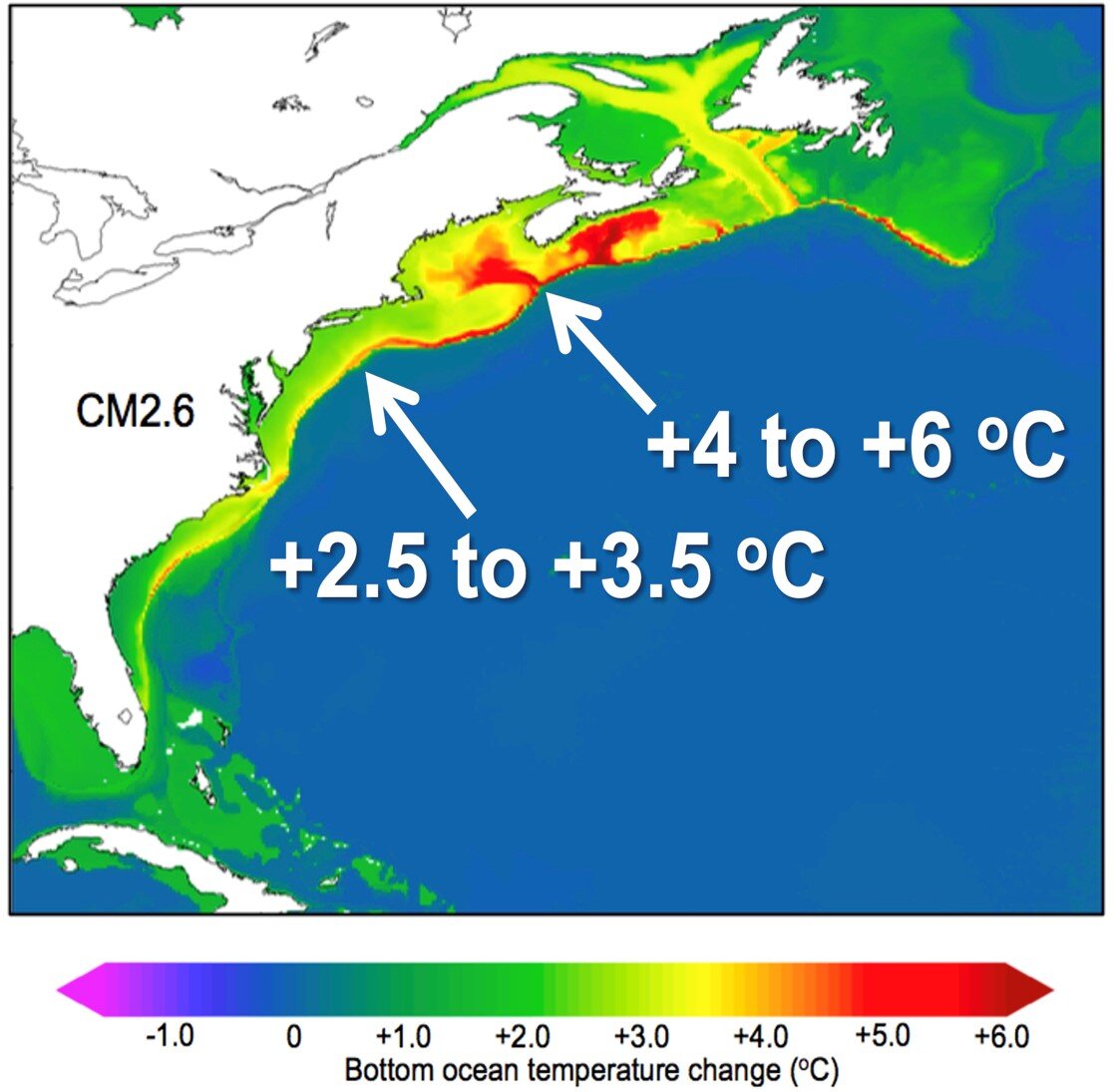On the East Coast of the United States, some species of fish are already experiencing climate-related shifts in distribution, abundance, and productivity. Although the future is uncertain, a continuation or acceleration of climate change has the potential to strain our existing fishery management system and alter the way fishermen, scientists, and the public interact with the marine environment.
Global climate models can project how ocean conditions will change over time. This figure shows how ocean bottom temperatures are projected to increase, especially north of Cape Hatteras, NC by the 2060s to 2080s under a “high CO2 emissions” scenario where carbon dioxide (CO2) increases by 1% per year and doubles after 70 years. Image © NOAA Fisheries NEFSC
In order to begin preparing for this possibility, management bodies along the entire Atlantic seaboard have teamed up to launch a new project called East Coast Climate Change Scenario Planning. Scenario planning is a way of exploring how fishery management may need to evolve over the next few decades in response to climate change. You can find additional details in the introductory brochure.
Weigh In! Stakeholder Input is Key to Effective Scenario Planning
The initiative is being organized by a Core Team of representatives from the New England, Mid-Atlantic, and South Atlantic Fishery Management Councils, the Atlantic States Marine Fisheries Commission, and NOAA Fisheries. The team has lined up three kick-off webinars:
Monday, August 30, 4:00 – 5:30 p.m.
Wednesday, September 1, 6:00 – 7:30 p.m.
Thursday, September 2, 10:00 – 11:30 a.m.
Please register at the links above. The webinars will introduce stakeholders to the overall initiative, explain the benefits of participating in the process, outline additional ways to become involved, and begin collecting stakeholder input. All three webinars will have the same presentations; it is not necessary to attend more than one webinar.
An online questionnaire will be available soon to serve as an additional tool to collect input. Watch the Scenario Planning webpage for updates.
Next Steps and Expected Outcomes: Over the next year, fishery science and management organizations, guided by the Northeast Region Coordinating Council (NRCC), will bring together fishery participants, fishery managers, researchers, and other stakeholders to discuss climate change issues. The intent is to emerge with ideas and recommendations on how fishery management can adapt to climate change. However, nothing will happen immediately and managers will need to discuss the recommendations from the scenario planning project to determine next steps.
Organizations Working on East Coast Climate Change Scenario Planning


